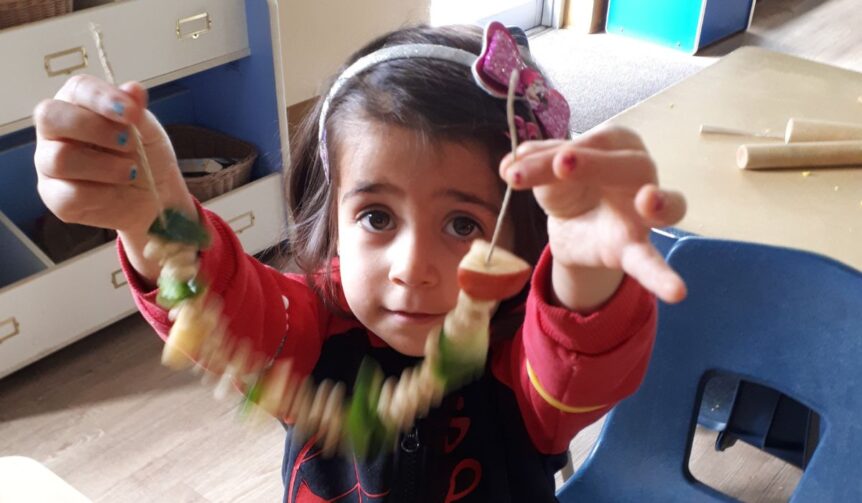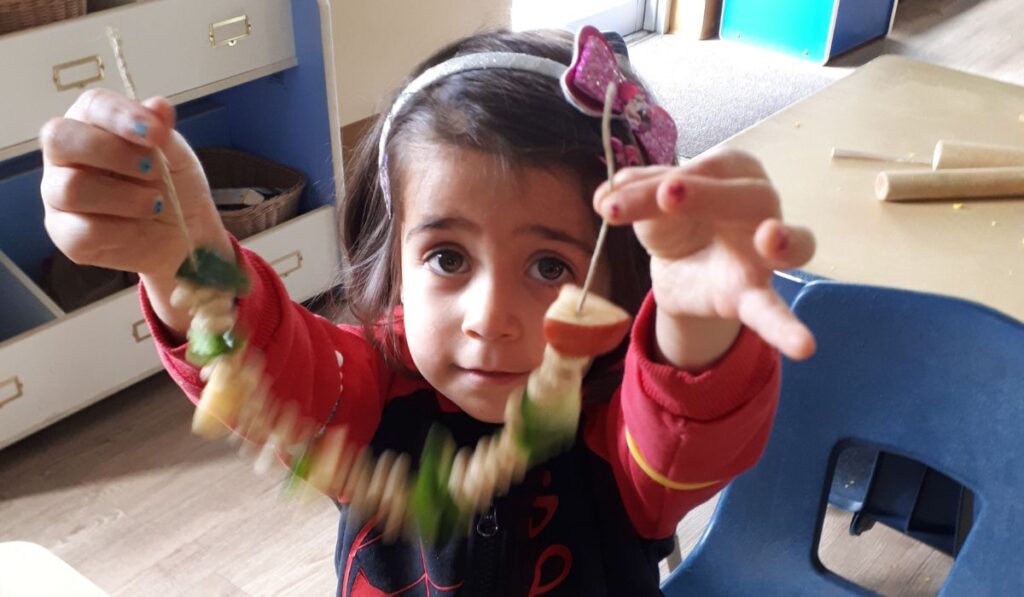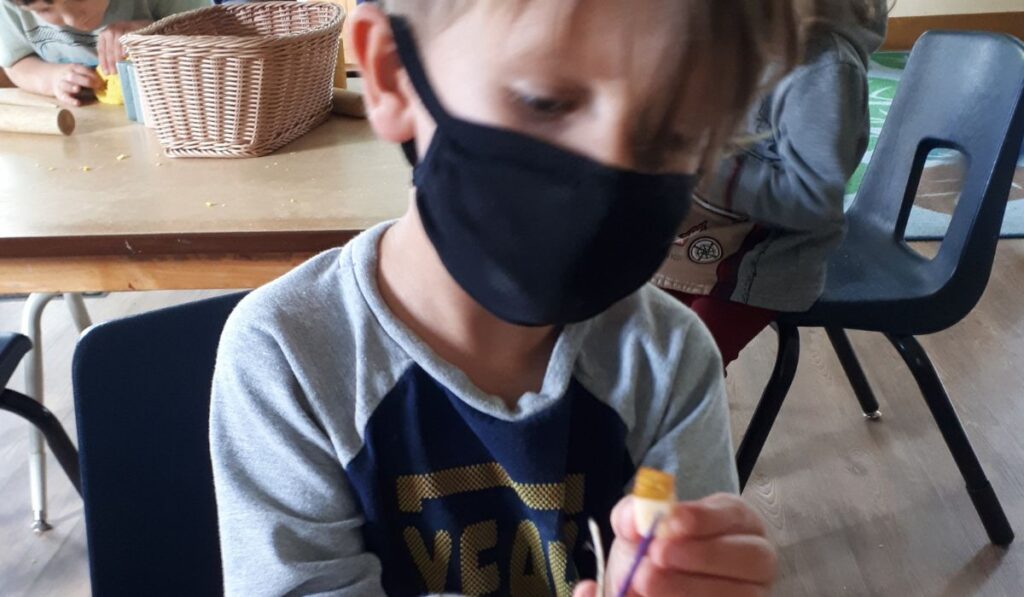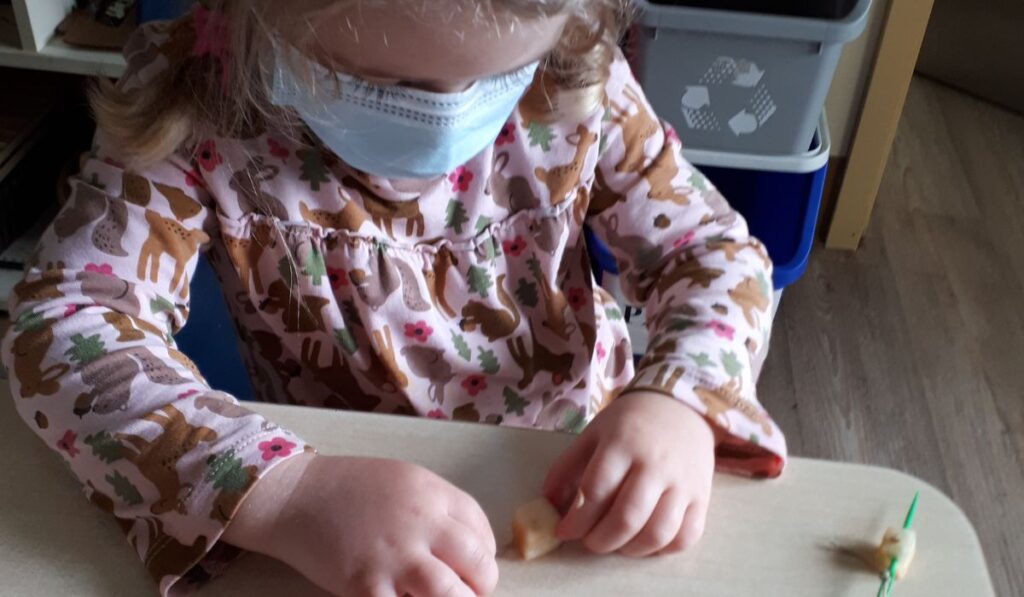The kinders were really excited about the fire and storytelling that was planned as part of our Walk for Wenjack. We noticed though, that we had gotten a little low on kindling for starting the fire and wondered about getting some from the forest (just enough) to help us with this problem. The children shared their ideas about what they know: “Every stick is a home for a bug” and “Things in the forest should stay there because that is where they belong”, before we introduced the concept of reciprocity. The children were right. Things from the forest do belong there, just like everything has a place of belonging but we felt this would be a great way to begin learning about reciprocity. The magic of give and take, with the natural world and with one another.
We had seen birds in the yard that morning and had begun talking about making feeders for them. I wondered what the children would think about creating feeders for the forest in exchange for some kindling for our fire. When I offered this thought to the children, they loved the idea and shared, in their own words, their understanding about balance, give and take and caring for the land.
Making the feeders was a lot of fun. Each child created a unique gift using fruit, vegetables and cereal to offer the forest. In the forest, they proudly hung their feeders in special places as a thank you for the kindling. We recorded what the children knew about this action of reciprocity at our afternoon circle as well. Our next visit to the forest brought excitement as the children began to notice that their feeders had disappeared, assumingly gobbled up by the animals that inhabit the space. We all felt proud that our gifts were received, accepted and enjoyed as we intended them to be.
As we made our way into the garden in the days that followed, the children have expressed their understanding of putting the gardens to bed. We have talked about the work involved and why it is important to care for the garden even when it is not giving us food. Through conversations, the children have told me, “We have to take care of the garden if we want the garden to take care of us”. I watch them pull the dying plants from the soil, careful to replace the bugs and worms they disrupt in the process, sharing that “this is their home” and that “these worms help us too because they help the garden”. A lesson in reciprocity they remind one another of often. I’m so proud of how the children see our land and its inhabitants as our equals, the relationships they are building with the natural world and to see them taking responsibility so that, in B’s words, “The level stays the same.”

Reciprocity, we are learning, is important in all of our relationships. When we shared the story “When We Are Kind” by Monique Gray Smith, the children reflected together on what kindness means to them. I wasn’t surprised when I heard their thoughts on this. Much of their replies revolved around helping others, mainly the people we love. We talked about how it feels when someone helps us or shows kindness to us and the children expressed their good feelings about helping others. On the day of our Walk For Wenjack, the children were delighted to have so many of their family members join us. As we walked, we chatted…connected, with each other and one anothers’ families and afterwards, we played! We enjoyed a fresh bit of snow together and with our families before sending them off in many directions for the day. Later, the children shared with me what they recall about Truth and Reconciliation and Our Walk for Wenjack being a way to remember and help. As we reflected on the morning, we recognized how fun the morning was, how much joy we shared but also how coming together to help others was the source of so much joy. That giving (in this case helping, remembering and respecting) actually gave us this opportunity and the feelings of happiness we felt that had the children declaring “We really should do it again!!”
Chelsa O, RECE, Forest School Practitioner




